Objects
Displaying 676 - 700 of 1096
| ObjectID | Object Description | |
|---|---|---|
| 2018.038.026 Uniform, Organizational |
Ku Klux Klan uniform most likely dates to ca. 1927 era. The hood and rope belt are mass-produced pieces and probably come from Atlanta or Indianapolis. The robe, however, was probably made locally.… Read More | 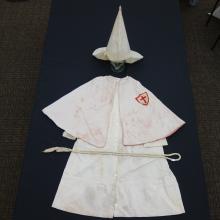
|
| 2018.038.027 Uniform, Organizational |
This KKK uniform was donated anonymously. It was found in the attic of a rental property in Waterloo, c. 1980. Judging by its construction and cut, the robe probably dates to the 1920s, the peak of… Read More | 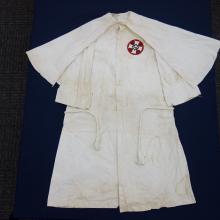
|
| 2018.039.001 Tooth, Mammoth |
This tooth belonged to a mammoth that was found in O'Brien County, Iowa. Content can be used with the following standards: Kindergarten SS K.14 Iowa Environment in a lesson on prehistoric Iowa and… Read More | 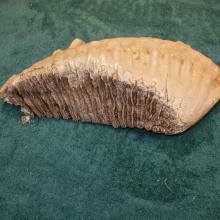
|
| 2018.039.002 Potsherd |
This artifact fragment was part of a piece of pottery made by a Native American society known as the Mill Creek culture. The Mill Creek culture was part of a larger group of horticultural villages… Read More | 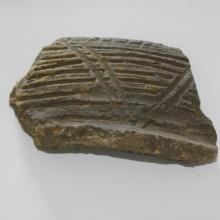
|
| 2018.039.003 Arrowhead |
The "bird point" arrowhead dates back to the Oneota era. The term "Oneota" referred to the Oneota River, now called the Upper Iowa River, where many Native American artifacts were found. Oneota… Read More | 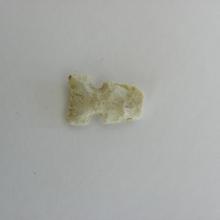
|
| 2018.039.004 Head, Axe |
This axe head was used by a Native American society known as the Mill Creek culture. The Mill Creek culture was part of a larger group of horticultural villages that started to appear around 1000 A.D… Read More | 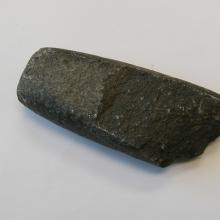
|
| 2018.039.005 Scythe |
This scythe was used by one of the early settlers of O'Brien County, Iowa. Scythes were commonly used to mow grass or harvest crops before the invention and growing popularity of horse-drawn… Read More | 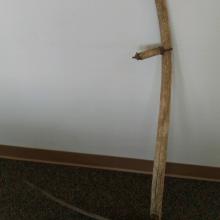
|
| 2018.039.006 Tool, Combination |
This came from Wittrock Village, the site of a Mill Creek village located near Sutherland, Iowa. The Office of the State Archaeologist belives it is part of a fire starting kit or perhaps a drill… Read More | 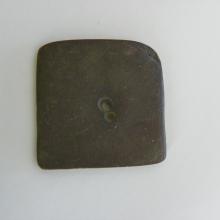
|
| 2018.039.007 Wagon, Covered |
This covered wagon was used by a resident of O'Brien County, Iowa, to travel to South Dakota near the turn of the 20th Century. The wagon was originally pulled by a team of oxen, although these… Read More | 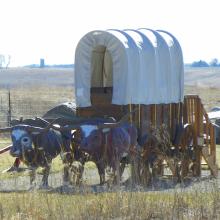
|
| 2018.040.001 Certificate, Citizenship |
This certificate, issued by the District Court in Marengo, Iowa, declared that Adam Bormann, an immigrant from the Kingdom of Bavaria, was a citizen of the United States. Bormann settled in the Amana… Read More | 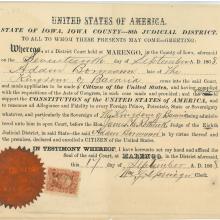
|
| 2018.040.002 Contract |
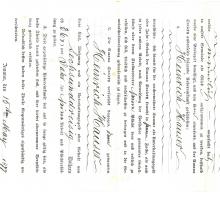
|
|
| 2018.040.003 Passport |
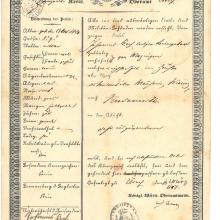
|
|
| 2018.040.004 Trunk |
Barbara Heinemann Landmann, a member of the Pietist group The Community of True Inspiration, used this trunk when she immigrated to the United States in the 1840s. Landmann first settled in the… Read More | 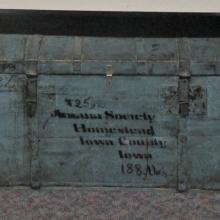
|
| 2018.040.005 Bible |
This Luther Bible was used by the Community of True Inspiration, a German Pietist group. The book next to the Bible is a Psalter-Spiel, which was a hymnal book developed by the Pietists in 1718 and… Read More | 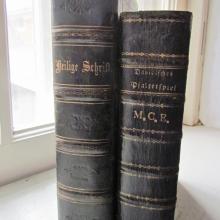
|
| 2018.040.006 Inventory |
This inventory list was used to keep track of the items housed within on of the Amana Colonies' communal kitchens. Originally, the citizens of the Amana Colonies did not cook or eat meals in their… Read More | 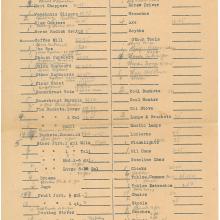
|
| 2018.040.007 Ballot |
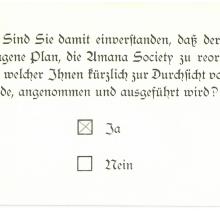
|
|
| 2018.040.008 Affidavit |
George Heinemann, the president of the Amana Colonies, filled out this affidavit during World War I. The Amana Colonies was a religious and pacifist community that wished to avoid becoming involved… Read More | 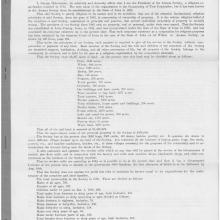
|
| 2018.040.009 Clipping, Newspaper |
During World War I, men from the Amana Colonies in Iowa County were exempted from serving in the military due to their religious and pacifist beliefs. In 1918, men from Iowa County gathered for a… Read More | 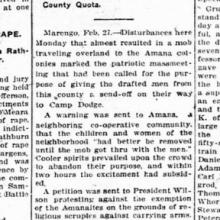
|
| 2018.040.010 Textbook |
This textbook, which was first created in 1893, was used to teach German speakers how to read, write, and speak English. In May 1918, Iowa Governor William Harding issued the Babel Proclamation,… Read More | 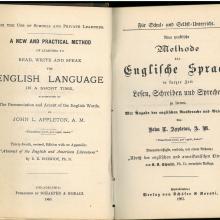
|
| 2018.040.011 Receipt |
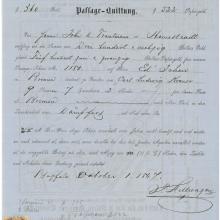
|
|
| 2018.040.012 Constitution |
The Community of True Inspiration drafted this constitution for their Ebenezer Colonies, which they founded in New York. The constitution outlined the society's structure and the rights and… Read More | 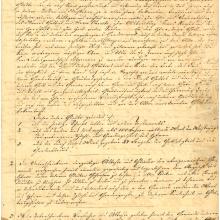
|
| 2018.040.013 Memoir |
This memoir was written by Johann Jacob Ruff, a member of the Community of True Inspiration. Ruff's family joined the Community when he was very young. In 1843, when Ruff was 16, his family moved to… Read More | 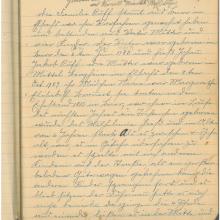
|
| 2018.040.014 Box, Ballot |
This ballot box was used in the Amana Colonies's vote over whether to keep or dissolve the community's communal structure. The members of the community voted in favor of dissolving the communal… Read More | 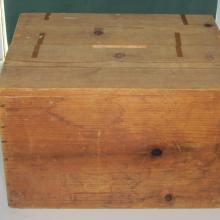
|
| 2018.040.015 Cap, Military |
This cap was part of Albert Setzer's military uniform. Setzer was a member of the Amana Society in Iowa County who served during World War I. Due to their pacifist beliefs, men from the Amana… Read More | 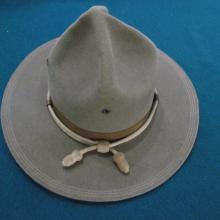
|
| 2018.040.016 Dictionary |
This Webster's Dictionary belonged to Albert Setzer, a member of the Amana Colonies in Iowa County. Setzer was one of about 30 Amana Society members who served in the United States Military during… Read More | 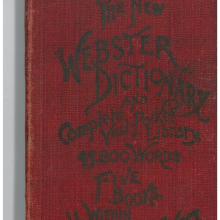
|
